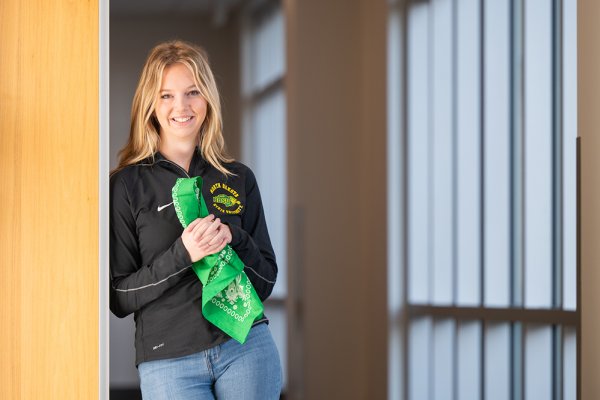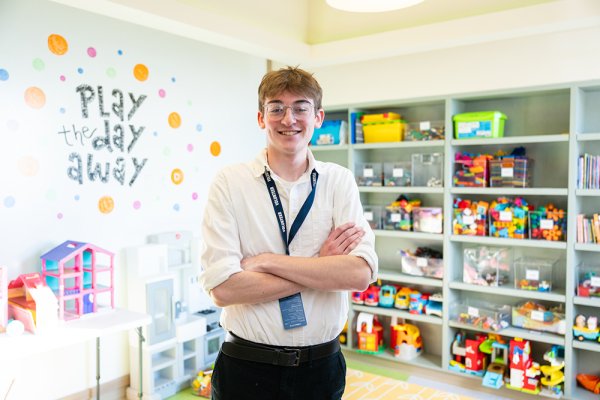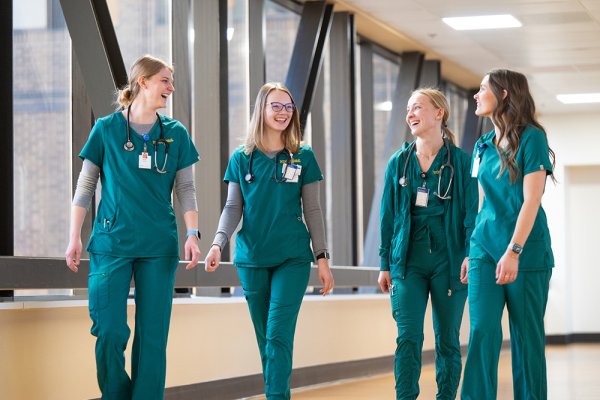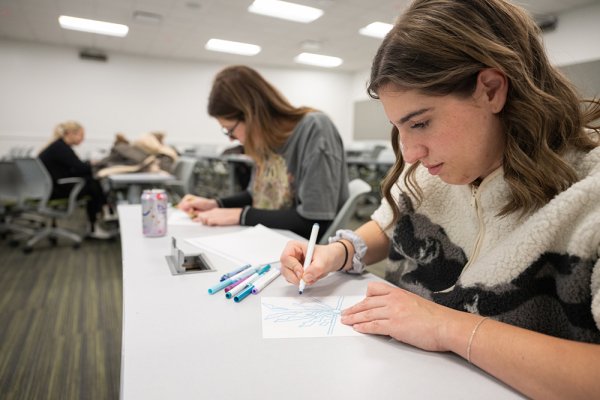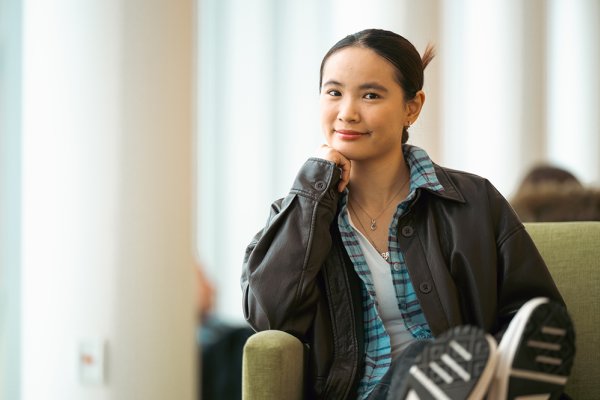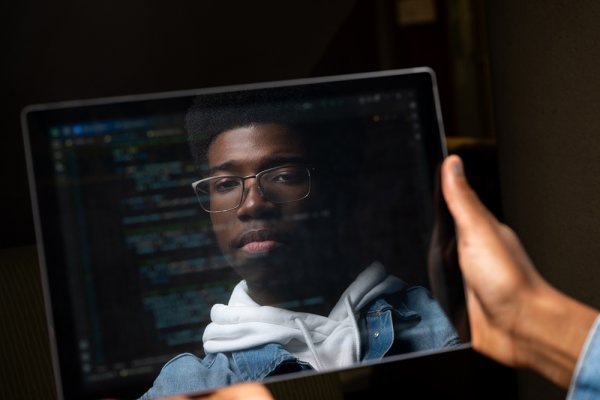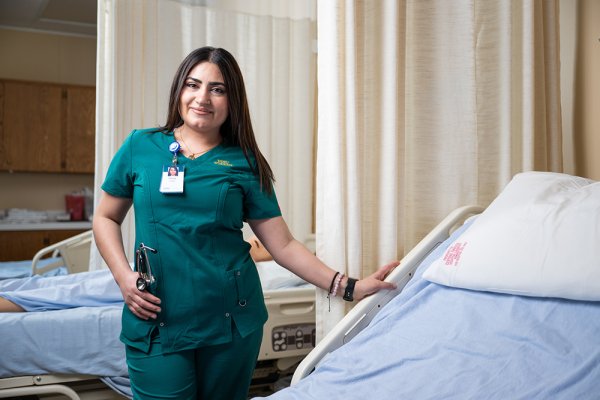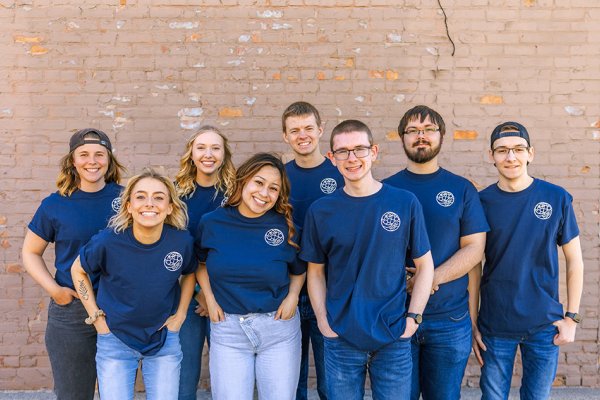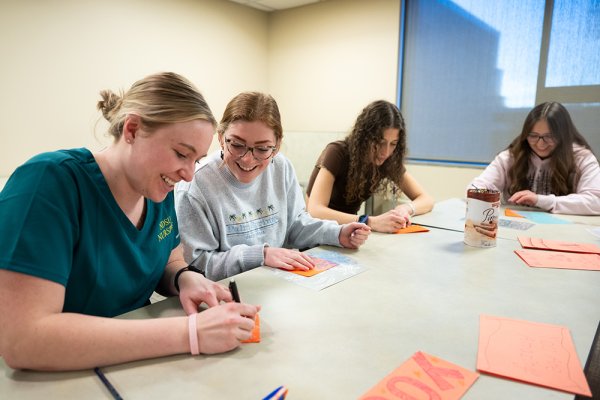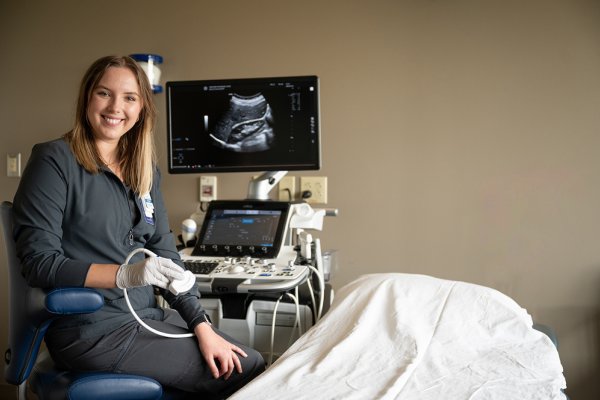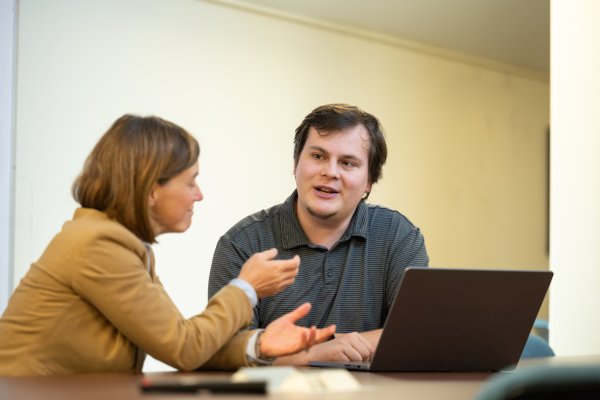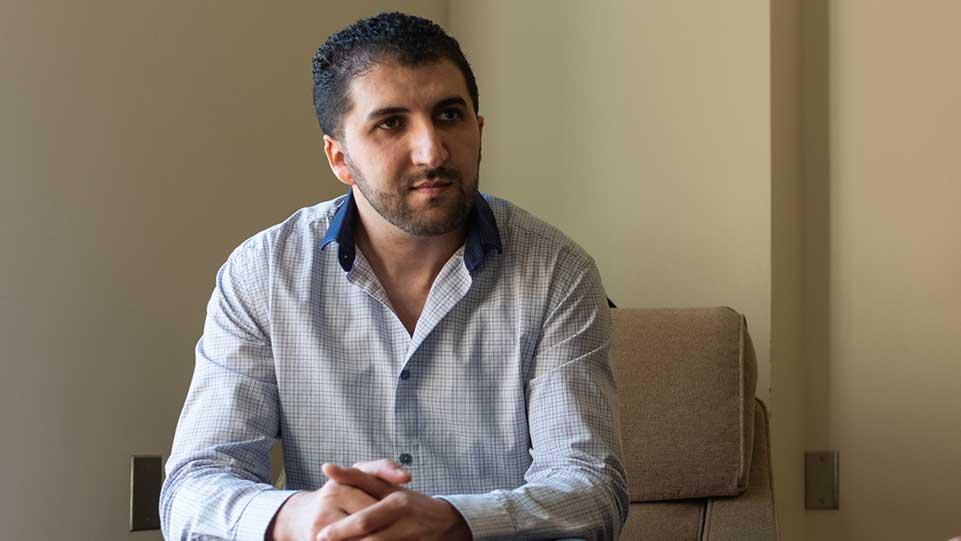
NDSU students can work on groundbreaking research projects that have the potential to change the world. The outside-of-the-classroom experience helps establish valuable research skills while giving potential employers a sample of a student’s job potential.
One such project is NDSU artificial intelligence research designed to provide targeted health care for American Indian patients with diabetes. The project, which received a nearly $1 million National Science Foundation grant, is led by computer science professors Jen Li and Jun Kong. Computer science graduate students Bikesh Maharjan and Shadi Alian also play an integral role in the research.
“This project gives students an excellent opportunity to apply what they have learned from their graduate courses to real application, which will be used with real patients,” Li said. “This sort of hands-on knowledge can't easily be taught in textbooks or classes since it requires a real setting where people are doing real work and not just preset exercises with known results. Everything they are learning will be valuable experiences for their future career as researchers or engineers.”
The research project is a targeted and personalized diabetes management aid for members of the Minnesota Lower Sioux Tribe. One of the components is an app that uses the latest artificial intelligence technology to provide patients with real-time health management recommendations for food, exercise and social activity. With help from projects like this, NDSU and the computer science department have become regional leaders in artificial intelligence and cybersecurity.
The app also provides a direct link to health care providers, who can use the app to closely monitor their patients. The direct link is especially important for the American Indian population, which often has poor access to health care due to location and other factors.
Maharjan and Alian are working on coding the app and doing in-depth research to make the finished product as personalized as possible. They work hand-in-hand with Li, the medical community and the tribe.
“The opportunity to help the tribe is one of the motivations that made the project even more important for me,” Alian said. “I’m helping to do something really good for people who actually need it. It’s not just something for me to say ‘look at this thing I did.’ It’s helping people who actually need help.”
Alian was the first student to work on the project. In his second year as a doctoral student, he has worked on the research since he arrived on campus.
Maharjan, a first-year doctoral student, said he chose NDSU for the opportunity to be part of the research. He said the project has improved his coding skills and given him additional benefits he never expected.
“Communication is very important part of this research,” Maharjan said. “We need to be able to talk with medical experts and people of the tribe in a way everyone can understand. We need to be able to connect with many different people so the project can be successful.”
The app could be ready for release in about two years.
Alian, who was a lecturer at the University of Jordan for eight years before coming to NDSU, said he hopes to return to teaching after earning his degree. Maharjan said his goal is to create a business that teaches computer sciences skills to people in Nepal.
The research project is supported by NSF grant No. 1722913.
Explore graduate programs at NDSU.
